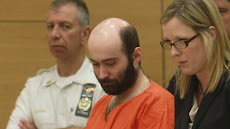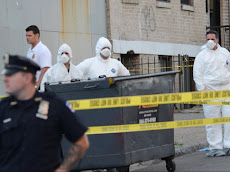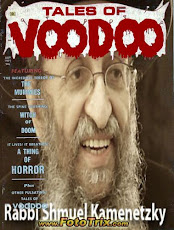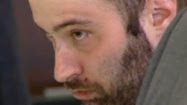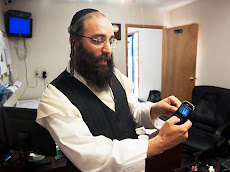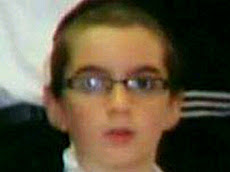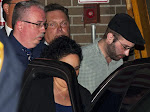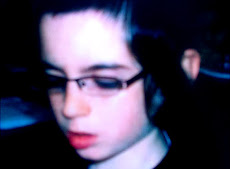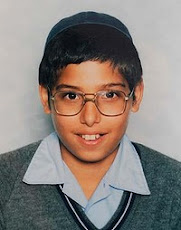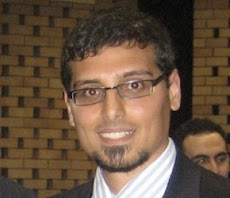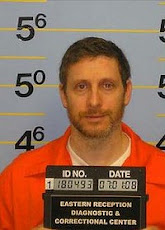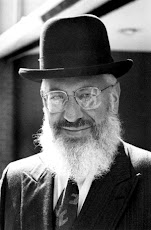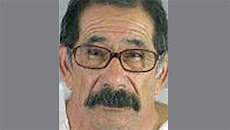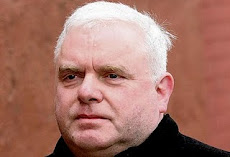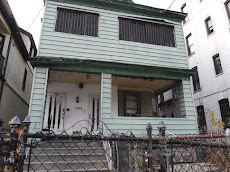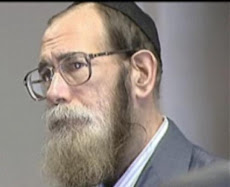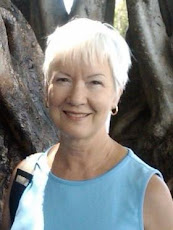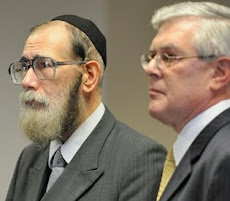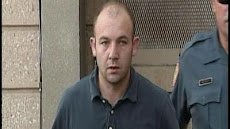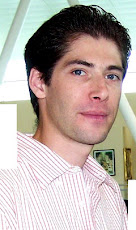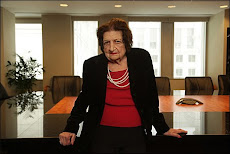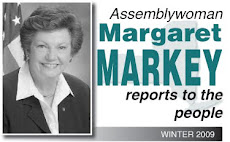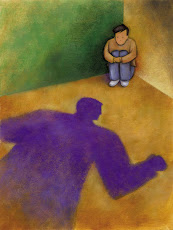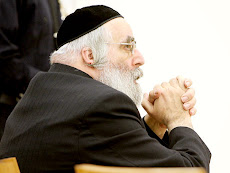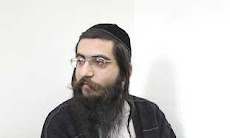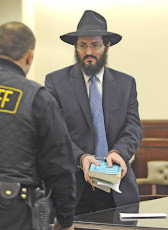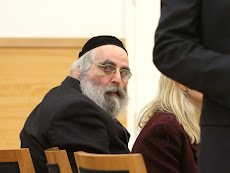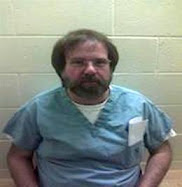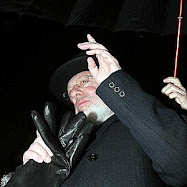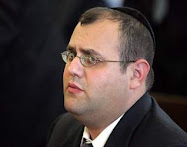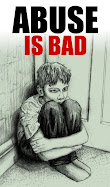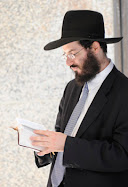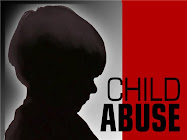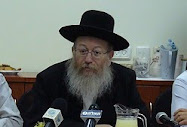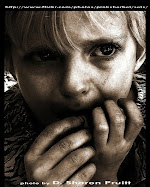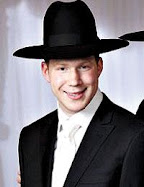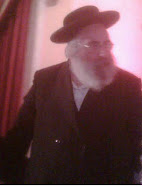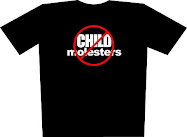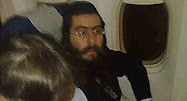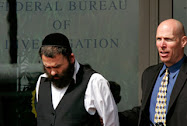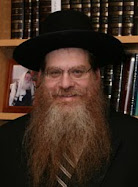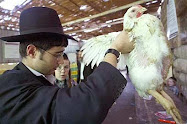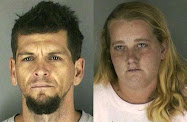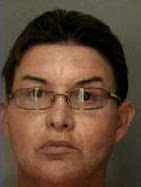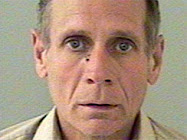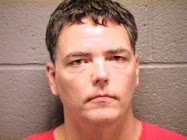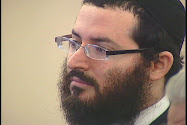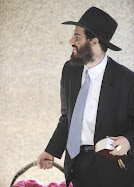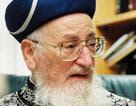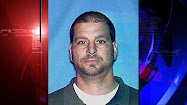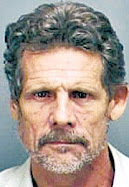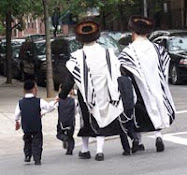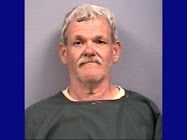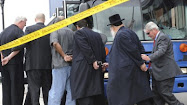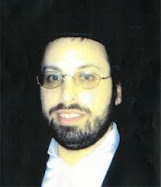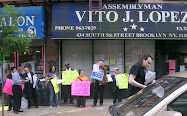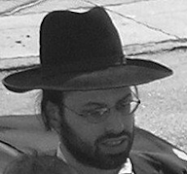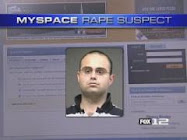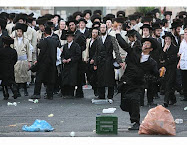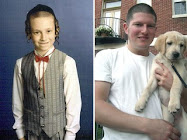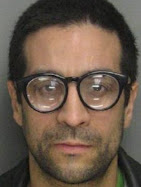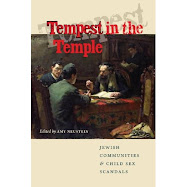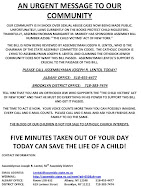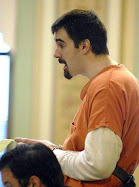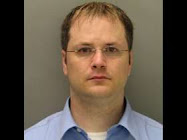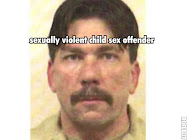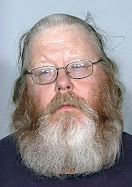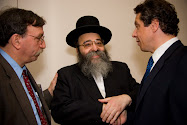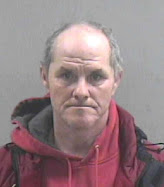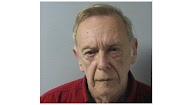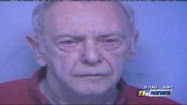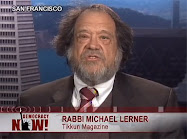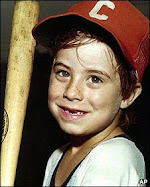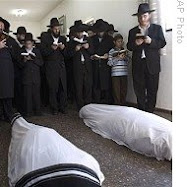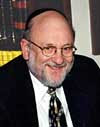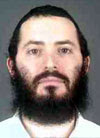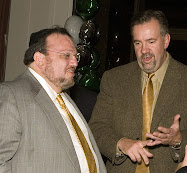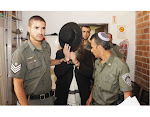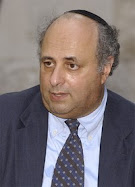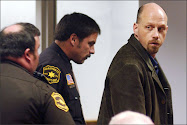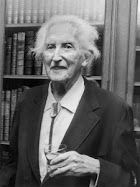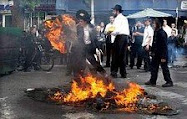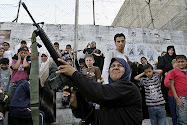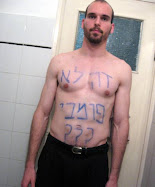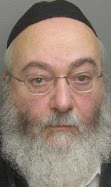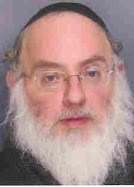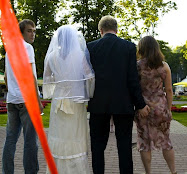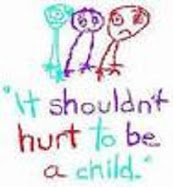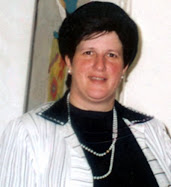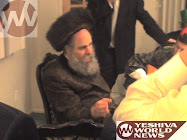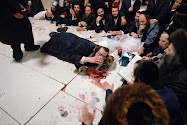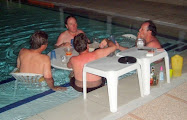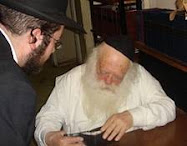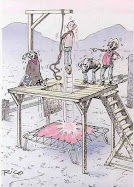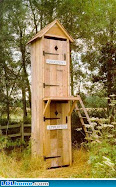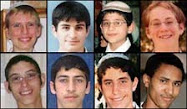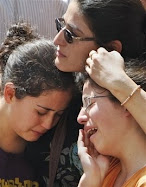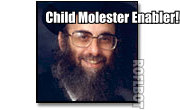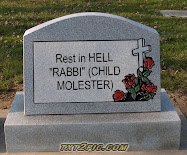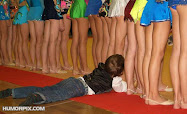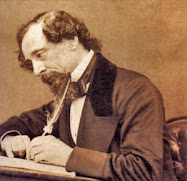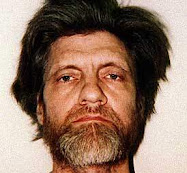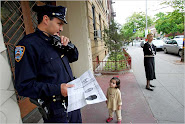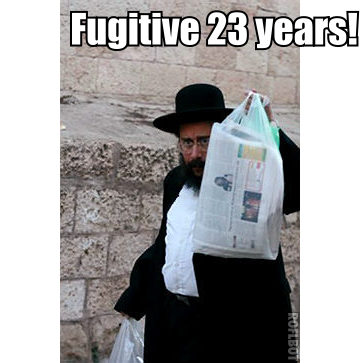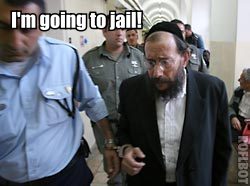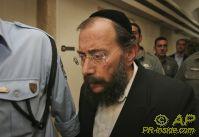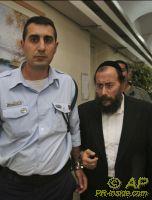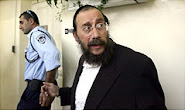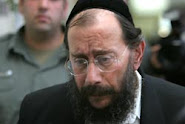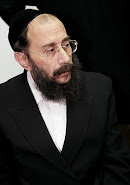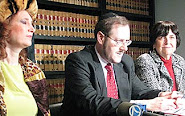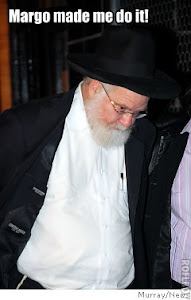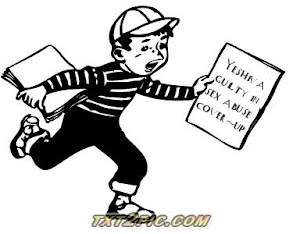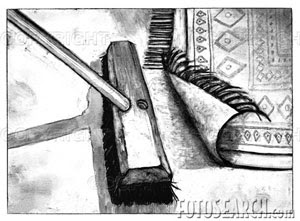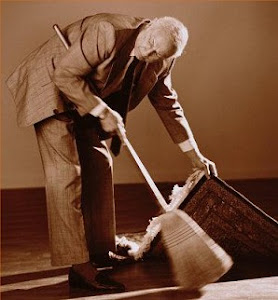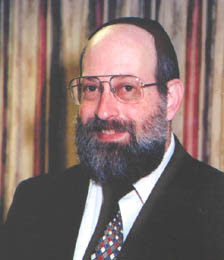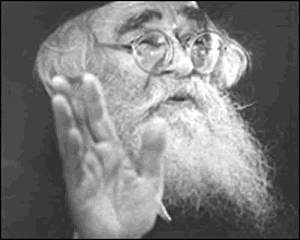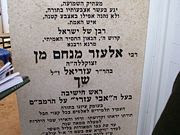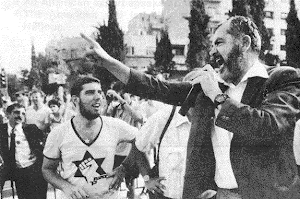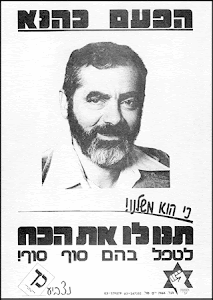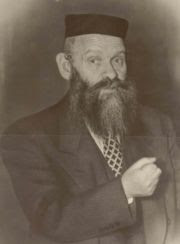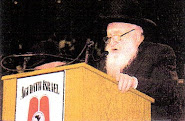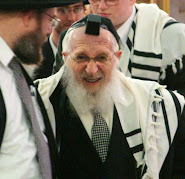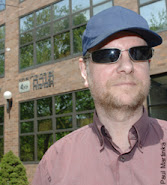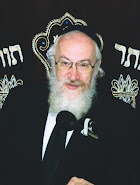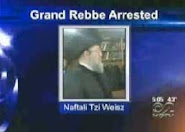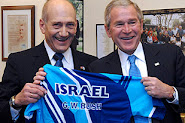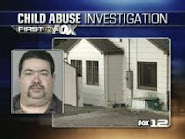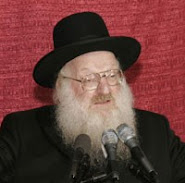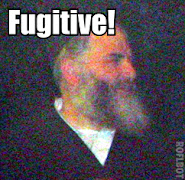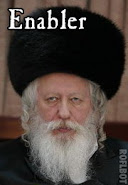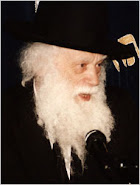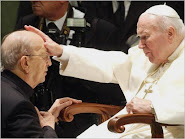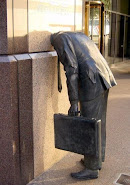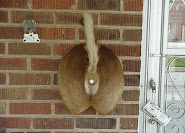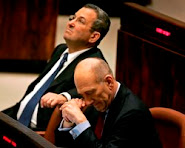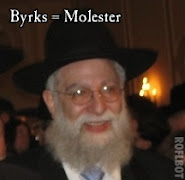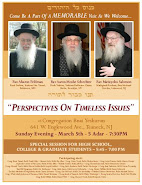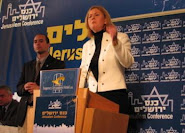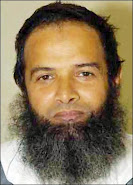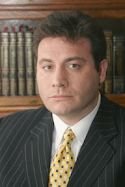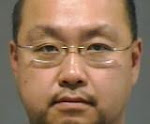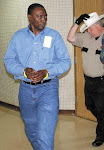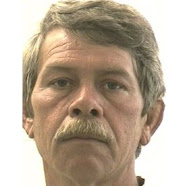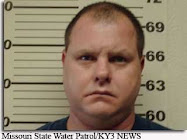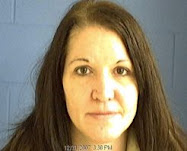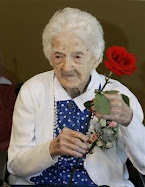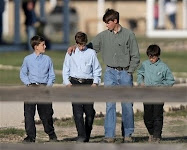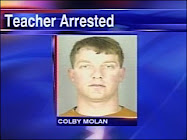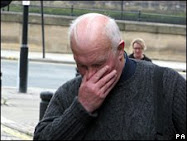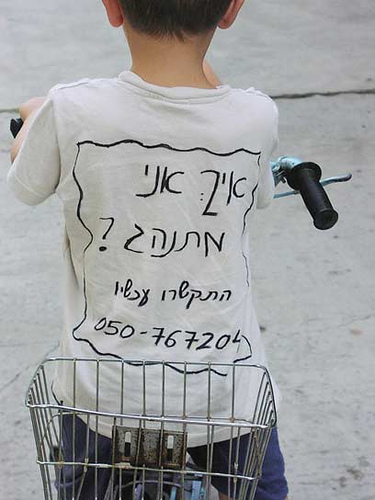
 http://www.thejewishweek.com/viewArticle/c36_a13347/News/New_York.html#
http://www.thejewishweek.com/viewArticle/c36_a13347/News/New_York.html#A Charge Of Double Betrayal In Williamsburg
Joel Engelman thought he had a deal. The Satmar rabbi who he says molested him would stay away from children. He now charges he was violated twice.

| Joel Engelman, yeshiva boy turned rock drummer, on the streets of Williamsburg. “When I think about how another kid might be suffering what I went through, I can’t walk away.” Michael Datikash |
|
by Hella Winston
Special To The Jewish Week
Joel Engelman was 8 years old the first time he was summoned to the principal’s office at his Satmar school in Williamsburg, Brooklyn. Not knowing what he might have done to provoke the call, Joel was nervous, as his principal, Rabbi Avrohom Reichman, had a reputation for being strict.
Much to his surprise, however, when he arrived, the principal put him on his lap and began “to change character,” talking to him like a “loving granddaddy,” Engelman told The Jewish Week. But what the principal at the United Talmudical Academy did to the boy that day — and several times a week over the next two months — was far from grandfatherly, Engelman charges in a suit he filed last week.
It alleges that in 1993, Rabbi Reichman, now 57, regularly molested him, and that the Satmar school, United Talmudical Academy, later committed fraud by agreeing to dismiss Rabbi Reichman — and then reneging on this once the criminal statute of limitations had passed.
Engelman’s sexual abuse allegations are the latest in a string of such charges made by former male yeshiva students in ultra-Orthodox schools in Brooklyn.
Last April, Rabbi Yehuda Kolko, a first grade teacher at Yeshiva Torah Temima in Flatbush, pleaded guilty to two counts of endangering the welfare of a child after being charged with several counts of sexual abuse. Brooklyn District Attorney Charles Hynes defended the last-minute downward plea bargain, citing the young age of the plaintiffs who would have had to testify at a trial.
Several civil suits pending against Rabbi Kolko and the school seek a total some $50 million in damages.
The suit filed by Engelman, however, is the first to emerge that involves the Satmar community, one of the largest chasidic sects in the city. Repeated calls to Rabbi Reichman and to UTA for comment were not returned
“He would swivel the chair from right to left and ask me, ‘How are you? How was your day?’ Engelman said, recalling his meetings with Rabbi Reichman as a child. “And then he would start touching me, starting at my shoulders and working his way down gradually, until his hands passed over my genitals.”
According to Engelman, now 23 and far removed from the insular Satmar community, the rabbi would rub and fondle him for about 15 minutes, all the while asking him how he was doing and what he was thinking. Engelman remembers trying to escape, to no avail. When the rabbi was finally finished he would utter the word — “Dismissed” — and then elicit a promise from Joel not tell his parents what had happened.
And Engelman kept that promise — for about 10 years, after enduring bouts of anxiety, drug use and suicidal thoughts he says were brought on by the abuse. “I realized that this was controlling my everyday life,” Engelman said. “I have a lot of trouble trusting people. I cannot trust anyone.”
When he finally mustered the courage to confront Reichman, in April, the statute of limitations on a criminal prosecution was drawing near. A letter from Engelman and his family to Reichman stipulated that if Reichman were to resign from his position in the yeshiva and also in a Satmar-run summer camp, where he taught, Engelman would take no legal action.
He thought he had a deal that month, hammered out with Satmar officials acting on UTA’s behalf. But in court papers filed last week, and first reported on The Jewish Week Web site last Wednesday, Engelman is alleging not only sexual assault and abuse but also “breach of promises and oral contract” in a $5 million civil suit against Rabbi Reichman, UTA and the Satmar Bungalow Colony — a Satmar children’s summer camp in White Lake, N.Y. Rabbi Reichman was videotaped by Engelman in July teaching at the summer camp, though apparently he had not been teaching at the school since Passover. Engelman said he has since learned that Rabbi Reichman is the camp’s principal.
“The defendants fraudulently induced Joel Engelman to enter into this exchange of mutual promises, and oral contract,” the suit alleges.
It also claims that various Satmar officials investigated Engelman’s allegations and found that “there were multiple, credible complaints of sexual abuse made against Reichman.”
“I really didn’t want to get this in the courts,” Engelman told The Jewish Week. “Had [the school] done things differently [and fired Reichman], I probably wouldn’t have sued. This is the last thing I wanted.
“They could have admitted the guy had a problem,” Engelman continued. “They could have said, ‘We’re very sorry this happened to you.’ They could have dealt with this honorably, but they didn’t.”
Rabbi David Niederman, the only community official who would agree to speak with The Jewish Week, expressed skepticism that school officials had ever agreed to the deal Engelman proposed.
He viewed Rabbi Reichman’s return to the summer camp after his initial suspension from the school as an indication that UTA officials did not ultimately find sufficient evidence to back up Engelman’s allegations.
“It’s only normal when charges like this are brought to suspend the teacher in question and conduct your investigation,” said Rabbi Niederman, a confidant of the Satmar sect’s grand rebbe and head of the United Jewish Organization of Williamsburg, a community-wide advocacy organization. “That’s a totally normal reaction. Then, when you have gathered your information, you act on what you have found.”
Rabbi Niederman himself had initial contact with the case but says he quickly turned the matter over to “people who have the time and expertise to deal with this.” At his request, Rabbis Meshulem Jakobowitz and Zalman Leitner — part of an informal committee that “deals with sensitive social and religious issues in the community” —got involved, mediating between the school and Engelman. Reached by The Jewish Week, Rabbi Jakobowitz declined to comment. Neither Niederman, Jakobowitz or Leitner are defendants in the suit.
Rabbi Niederman disclaimed direct knowledge of what happened afterward. Engelman disputes this, claiming that one of the rabbis he worked with on the abuse issue told him of regular calls he received from Rabbi Niederman, a senior community leader, requesting updates.
Efforts to reach the rabbi in question, whom neither Engelman nor Rabbi Niederman would publicly name, were unsuccessful.
Today, Joel Engelman is a thoughtful and intense 23-year-old who works as a graphic designer. He is tall and slim, with long hair and a narrow beard, and he favors jeans and heavy metal T-shirts (he plays drums in a heavy-metal band on the side). His life in Greenpoint — he no longer keeps kosher or the Sabbath — is about as far removed from the cloistered life of Satmar Williamsburg as is possible.
In nearly three hours of interviews over several days last week, Engelman spoke candidly about his life, weaving a tale of long-held secrets and sexual abuse not just at the hands of the rabbi but by older teenage boys and adults as well. It’s a tale of shattered faith and, ultimately, flight from the Satmar womb in which he was raised.
“I felt that the world was upside down,” Engelman says now, looking back over what he sees as the “hypocrisy” of Rabbi Reichman and other rabbis. “We had the holiest of guys telling us not to look at ‘non-kosher’ things, but look what [Reichman] did in private.”
What the rabbi allegedly did became a private hell for Engelman. Within several months of the onset of the abuse, Engelman began to change. He started having panic and anxiety attacks, and nightmares. He would often roll around on the kitchen floor crying and became unable to sleep at night.
His schoolwork also began to suffer, as he could no longer concentrate in class. “I was spaced out,” Engelman remembered. “I didn’t concentrate and I didn’t care to concentrate. I didn’t want to think about [the abuse] but I was constantly thinking about it.”
His parents took him to a doctor who prescribed medication for the anxiety, but never spoke to the boy, so the story of the abuse never came out.
But it turns out that the alleged abuse at Rabbi Reichman’s hands was not the first time Engelman had been subject to such acts. A month or so earlier, he says he was repeatedly sexually abused by a 13-year-old boy, a neighbor who attended the same school. The teen, Engelman said, had threatened to kill him if he ever told his parents.
Engelman’s older sister, inquiring why he was always late getting home from school, figured out from his vague responses what was going on and told their parents. “Why didn’t you tell us?” they asked me,” Engelman said. Their concern came across to 8-year-old Joel as blame, not an atypical interpretation for a young child, according to psychologists. And he was scared to reveal to them that this had happened again — with Rabbi Reichman, no less — fearing that they would see it as his fault.
Engelman’s parents would eventually complain to Rabbi Reichman, telling him about Joel’s abuse at the hands of his 13-year-old schoolmate. Engelman was told that the boy was beaten up (he never knew by whom); the older boy never touched Engelman again. But soon after his parents reported the abuse to Reichman, the rabbi called Joel into his office for what would become the first fondling session, he alleges, the strict principal becoming a sweet grandfather to an innocent 8-year-old. To this day, Engelman wonders whether Rabbi Reichman took his prior abuse as a cue that he was perhaps primed for more abuse, a vulnerable target.
By the time he was 13, Engelman says he couldn’t trust anyone. But he was hoping to get a fresh start at yet another yeshiva. (His parents had removed him from UTA several months after Reichman’s alleged abuse began for unrelated reasons). As it turned out, it was “hell on earth,” the teen studying 15 to 16 hours a day. At this point, he wanted out, often wishing that someone would kidnap him. He was even resigned to having to live on the street if he had to. When he witnessed another boy, a friend of his, being “groomed” for abuse by an older man’s obvious flirtations, his own past history of abuse came rushing back. “I saw abuse all around me,” Engelman said of those days.
At 14, Engelman started to hang out with Puerto Ricans on the fringes of his neighborhood.
He snuck around, changed his clothes, hiding all of this from his family. He says he dropped acid. He felt trapped. He still kept kosher and Shabbos, but he wanted out.
Finally, at 18, Engelman was able to leave his old neighborhood, moving to Bensonhurst. He joined a heavy metal band, playing the drums (he was always interested in music; his parents bought him his first drum set). Yet he was still tethered to his old life, continuing to keep kosher and Shabbos, the sole Jewish guy in the band.
That year, living at a safe remove from Williamsburg, he finally broke the long secret and told his parents about the abuse he suffered at Rabbi Reichman’s hands. “They were shocked,” Engelman recalled. But they believed there was little recourse available, he said.
It turns out that a key to helping Engelman finally confront Rabbi Reichman was recently finding out that he may not have been the only victim. One former student of Reichman’s came forward to Engelman’s brother, who told Joel. Eventually, through various community activists, Engelman began making presentations to school administrators and boards of directors about sexual abuse in the community — identifying himself as a victim and drawing on his own experiences.
At one of the presentations at a Satmar school, Rabbi Reichman’s name was mentioned. A board member offhandedly said he recalled a complaint about the rabbi from five years ago but that nothing was done.
This second report of another victim was the spark to action Engelman needed, realizing that other kids were likely suffering what he had gone through.
Engelman consulted with his family about confronting Rabbi Reichman, and they decided to write a letter, which the elder Engelman would deliver to Rabbi Reichman. It was just before Passover of this year.
The letter, written in Yiddish (an English translation is part of the civil complaint), is plainspoken and laden with emotion. It begins: “We wish to let you know that since our son, Yoel Nechemia is a victim of you, you MOLESTED him as a child — you corrupted his soul, you were the cause of many years of anguish and suffering from him as a result — and because we know of other children who were victimized (molested) by you at least from 1993 until now — therefore you are a danger to children.”
It goes on to say that the family will take no further legal action if Rabbi Reichman agrees to resign his position as teacher at UTA and the upstate summer camp. The letter, signed by the Engelman family, ends: “The One Above should give you the right thoughts to have mercy on your family and take correct action.”
On the day his father delivered the letter, Engelman waited for two hours outside the rabbi’s Williamsburg home. He wanted to confront him face to face. “He was scared [expletive],” Engelman remembered. “Here I was, this heavy metal guy, dressed up in leather. He tried to get on my good side, saying ‘Oh, you lived on U Street.” I told him: ‘I will do everything and more than [what was written in] the letter if you come back to the school after Passover.”
Engelman said the rabbi told him that this wasn’t the right place to talk about this. He remembers the exchange vividly, the rabbi never denying what had allegedly happened. “You know exactly what you did.”
“What did I do?”
“You put me on your lap.”
“So what?”
“I am here to tell you that I am on top of this and it’s up to you.”
The next morning, Engelman recalled, a representative of UTA showed up at Engelman’s father’s workplace, saying, “We have a zero tolerance policy for abuse and we are going to take care of this. If he is found guilty, which we will investigate, he will be out the same day.”
Throughout a week of negotiations, Engelman said, the school made repeated promises to remove Rabbi Reichman from his teaching duties, and he was in fact removed from UTA after Passover. When Engelman got wind, however, that in July the rabbi was teaching at the Satmar Bungalow Colony, he put up fliers at the camp warning parents that the rabbi — “someone who is a great danger to your children, a danger to their body and soul — was in their midst. He then traveled to White Lake with a videographer and filmed the rabbi teaching a class.
Engelman’s case rests on what experts say is a risky legal strategy.
His attorney, Elliot Pasik, argues that United Talmudical Academy and the Satmar officials who helped negotiate the supposed deal with his client, perpetrated a fraud. He claims in court papers that the “defendants’ motivation was the expiration of the criminal statue of limitations for sex crimes on the 23rd birthday of Joel Engelman on June 24, 2008.”
“Satmar officials admitted to my client that Avrohom Reichman had committed child sexual abuse,” Pasik said. “They even administered a polygraph by a reputable company, and Reichman failed. The same Satmar officials admitted there were other credible complaints of child sexual abuse against Reichman.”
Pasik continued: “[Satmar] took advantage of Joel. They promised him that [Reichman] would not be working with children. Joel wasn’t looking for money — just keep him away from kids and he would forgo criminal prosecution. Once the school year was over, they put him in the Bungalow Colony. They broke their promise. An oral promise is enforceable.”
But Rabbi Niederman, noting that UTA had seen fit to ultimately return Rabbi Reichman to a job working with children, said he doubted some aspects of Engelman’s account. “If someone is addicted [to molesting children], why aren’t there more kids who have come forward in all these years?” he asked. “To say they were afraid — the kids or the parents — in this day and age doesn’t make sense. Parents are much more vigilant now about these kinds of issues.”
He voiced confidence in UTA’s integrity in investigating the matter. “If UTA wanted to cover up things, why would they take back this melamed [teacher] if they knew there was another case out there?” he asked.
Indeed, Engelman’s case may prove a hard one to make.
“The reliance argument [when a case is based on relying on a promise] makes perfect common sense but hasn’t worked all the way up,” said Marci Hamilton, a professor at Cardozo Law School. “States like Pennsylvania and New York have been resistant to it. The view is that if the statute of limitations [SOL] is being misapplied it is up to the state legislature to change it.
“This case just shows that the SOL is too short. When a 23-year-old can’t get into court, the SOL is too short. The majority [of abuse victims] come forward in their 40s. This reinforces that another state legislature that needs to act. When children are young [and within the SOL] they are often not psychologically ready to come forward. It can be very frustrating.”
The Satmar yeshiva boy turned drummer and graphic artist is sitting in a diner on East 57th Street, drinking a cup of coffee and reflecting on his long ordeal. In one sense, Joel Engelman’s break with his native community is complete. And yet, he cannot walk away. “I often wonder why I am putting myself through this,” he muses, acknowledging how difficult it has been to dredge up old memories and confront his abuser.
“I don’t live that life anymore and it would be easy just to forget about all of it and move on. But then I think about how another kid might be suffering what I went through, and I realize I can’t.”
And so the lawsuit has brought all of the bad feelings back in a rush. He says he is coping, though. And he hopes coming forward with his story will result in changes in the way the Orthodox community deals with the kind of sexual abuse he says he faced. Mostly, he wants to prevent what happened to him from happening to another child.
“He’s still out there,” Engelman said of Rabbi Reichman. [Without legal action], what is going to stop [UTA] from taking him back, from another school taking him?”
Breaking the general silence in the ultra-Orthodox community on the issue of sexual abuse is seen by experts as a key step.
“Our community has to address some of the hypocrisy of strictly not tolerating even minor adult sexual activities that are outside the realm of halacha, while remaining silent when otherwise frum people are sexually abusing children,” said Dr. Asher Lipner, a psychologist who treats victims of sexual abuse within the frum community. “Psychologically, it is devastatingly painful for its victims to come to terms with, and there is the need for society to teach out to its victims and to comfort them.”
“In order to change [this situation],” Lipner continued, “concerned parents need to lobby their yeshivas to develop safety protocols, to teach the children about safety and to agree to oversight by some kind of outside watchdog. Otherwise, I’m afraid that this will not be the last that we hear of school cover-ups for child molesters.”
Throughout her son’s torturous ordeal, Pearl Engelman told the Jewish Week the family was solidly behind him. “We cooperated with [Joel] on this,” she said. “His main objective was to get this man away from children. ... We tried to do this in a way that would be the least humiliating and shameful to [Reichman’s] large, extended family, who are really innocent.
“Our community, the Satmar community, and the whole chasidishe community, owes Joel a debt of gratitude. He’s very young to do this; most victims are much, much older when they confront these issues. He is putting himself on the line to protect other children from this type of trauma.”
According to Engelman, Rabbi Reichman reads from the Torah in the shul, which is considered to be a great honor. “People don’t believe he could possibly be an abuser,” Engelman said. “If that guy did that, then the world is over.”
Engelman says Satmars are reluctant to try to change things within their community, for fear that change will undermine the whole communal structure. “No one voluntarily says, ‘We want a better system. Any change will bring down the whole system,” Engelman said.
But he hopes that by standing up and telling his story publicly, change may eventually happen.
“Without shaming and lawsuits [nothing is going to change],” Engelman said. “That’s what happened in the Catholic Church, in the Boy Scouts.







